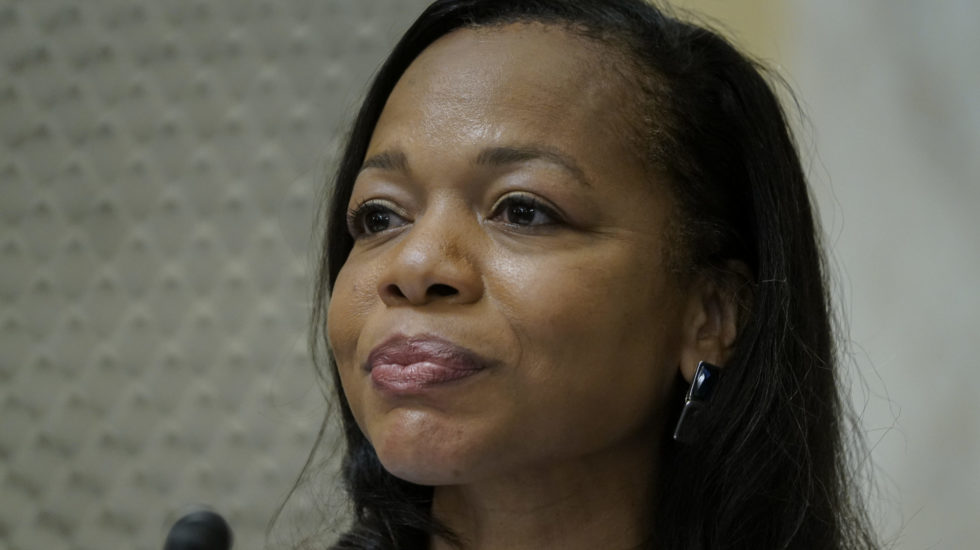Kristen Clarke will be the first woman to lead the Justice Department’s Civil Rights Division, catapulting her to the forefront of the high-profile DOJ investigations into the police departments responsible for the deaths of George Floyd and Breonna Taylor.
The Senate confirmed Clarke, a longtime civil rights attorney, 51-48. Senator Susan Collins of Maine was the sole Republican to green-light Clark’s nomination.
“As we continue to pursue strong policing reform legislation, the fight for racial justice by confirming Kristen Clarke on the anniversary of George Floyd’s murder is particularly poignant and appropriate,” Senate Majority Leader Chuck Schumer said on the Senate floor Tuesday. Members of Floyd’s family visited the White House and Capitol Hill to mark the one year anniversary of his death in police custody.
Clarke’s appointment has buoyed the hopes of voting rights activists. The New York Times provides more context:
The daughter of Jamaican immigrants who rose from a Brooklyn housing project to earn degrees from Harvard and Columbia Law School, Ms. Clarke is best known as a leading advocate for voting rights protections. Her expertise will make her a key player in the administration’s effort to push back on laws that could restrict access to the ballot box.
During her confirmation hearing, Ms. Clarke, 46, said that she would use all of the tools at her disposal, including the Voting Rights Act, the National Voter Registration Act and the Uniformed and Overseas Absentee Citizens Voting Act, to ensure that eligible Americans continued to have the right to vote.
Clarke was opposed by Republicans who claimed she is a “radical” who wants to defund the police. During her confirmation hearings, Clarke rejected that notion and said “I do support finding strategies to ensure that law enforcement can carry out their jobs more safely and effectively and channeling resources to emotional health treatment and other severely under-resourced areas.”
Reuters provides context about the role she’s stepping into:
She will start her job at a busy time for the department, which is facing a spike of hate crimes against Asian Americans during the COVID-19 pandemic, a wave of Republican state legislatures passing laws that critics say will make it harder to vote, and civil probes into whether police departments in Minneapolis, Minnesota, and Louisville, Kentucky, use unreasonable force and discriminate against people of color and/or people with disabilities.
Clarke was the president of the nonprofit Lawyers’ Committee, which focuses on social justice, for the last five years.
